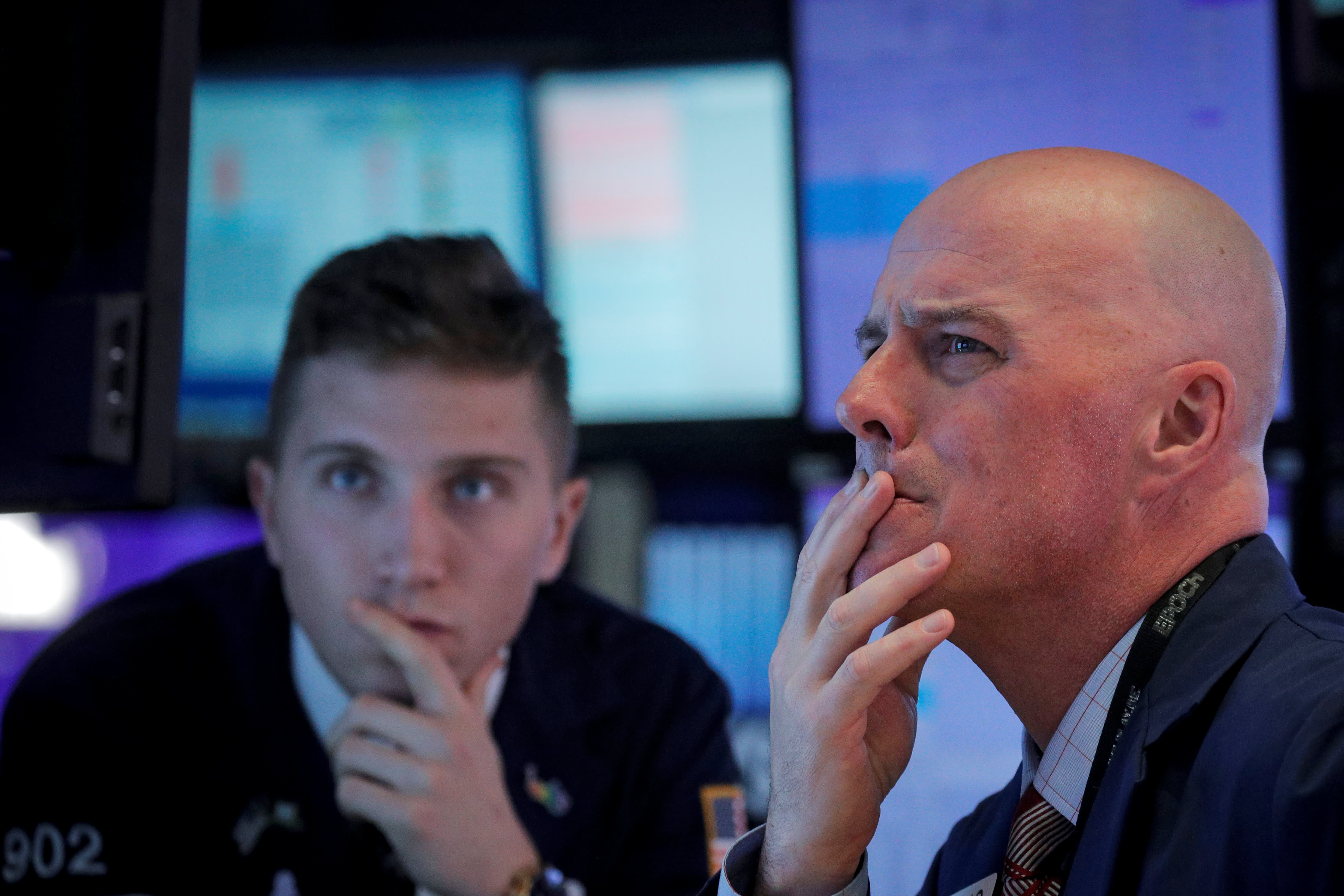V-shape? U-shape? L-shape? Wall Street strategists are engaged in a fight over whether the coroanvirus outbreak is a one-quarter hit to earnings and the economy or whether it is a multi-quarter phenomenon.
The multi-quarter phenomenon appears to be winning. But there are signs of hope.
One story that has gone out the window in the last couple days is whether it’s a “supply” or “demand” shock. A supply shock comes when companies cannot get parts to support the global supply chain, particularly parts from China. A demand shock is when consumers slow spending.
That question has been answered. Wall Street strategists now agree it is both, but there is disagreement about the extent of the economic impact.
“I think it’s demand shock and just starting,” said Peter Tchir of Academy Securities. “The ‘solution’ of contact avoidance will destroy demand. Might not last long, but weakest individuals and companies will be hit hard.”
Not everyone agrees the shocks are going to be so long-lasting. “We are experiencing both supply and demand shocks. … both for the same reason. Fear!” Jim Paulsen at Leuthold Group said. “The question therefore is how soon fears diminish.”
What about the shape of the recovery? V-shaped seems unlikely. The debate is between those who believe it will be U-shaped or L-shaped. But the idea that all the losses will be made up in the near future seems a bit like magical thinking, particularly if this drags on well into the second quarter.
“The biggest problem will come if this situation lasts into the summer,” said Matt Maley at Miller Tabak. “If that happens, some of the demand problems will not be made-up by an increase in demand later-on.”
That makes sense. Wall Street is already telegraphing that. Think about what is happening in the travel and leisure business: new lows in airlines, cruise ships, and entertainment companies like Live Nation. Why, if it’s all going to come back? Because some trips will not be re-booked. The economic impact from a loss of conference attendance — like South by Southwest — is not going to be recovered.
Think of your favorite restaurant, maybe you go once a week. When the crisis passes, are you going to go to that restaurant twice a week to make up for it? Are you going to drink twice as much wine if you go back to make up for the wine you didn’t drink? Many restaurants will go out of business if business drops significantly for several months.
That’s why restaurant chains such as Darden — owner of the high-end Capital Grille steakhouse — is down more than 25% since the end of February.
The optimists — let’s not call them bulls — have been pointing to China, passing around climate charts that show pollution emissions there are increasing. They see it as a sign the country is going back to work, and they note that China stocks bottomed in late January — peak coronavirus fears there — and are well off their lows.
The optimists are hopeful this will happen here, with a lag of a couple of months.
“I think there is growing evidence that China’s epidemic is ending and yes this is starting to bring operations on line,” Paulsen insisted. “Thus, if the virus does not mutate and remains a similar pattern as the China experience, then we are looking probably between a one- to two-quarter event.”
Let’s hope so. For the moment, we are faced with the prospects of a series of rolling outbreaks in different parts of the United States that will likely last for a couple months at least. Whether we can contain this as successfully as China appears to have done remains to be seen.
